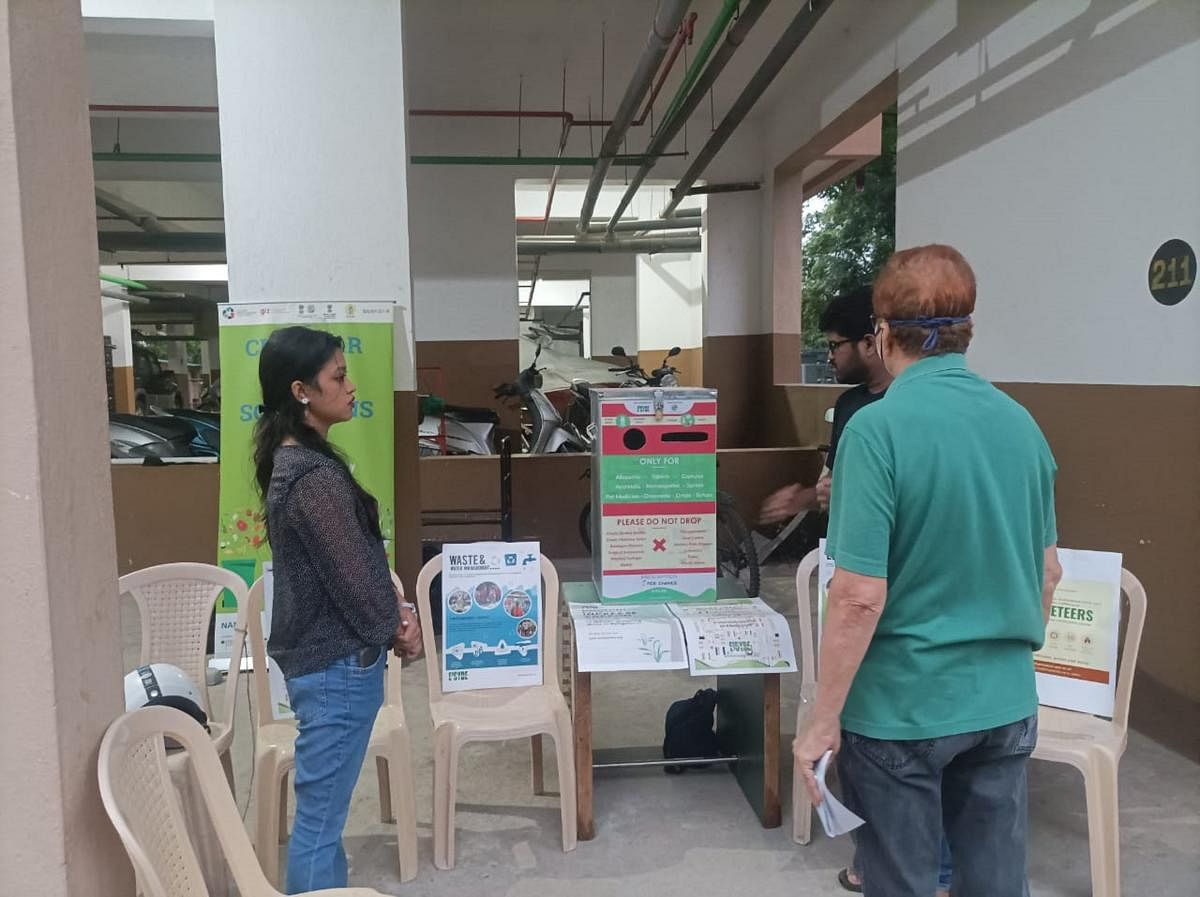
A Bengaluru non-profit organisation has restarted an initiative to reduce and manage biomedical waste from apartments in the city, specifically unused and expired medicines.
The initiative is called ‘Be The Prescription for Change’ and it was on a break because of the pandemic.
It is being helmed by Environmental Synergies in Development (Ensyde), which works to reduce the environmental footprint of organisations.
Ensyde has tied up with bio-medical waste management agency Maridi Bio Industries, Sampangi Rama Nagar, to collect, transport and dispose of the waste. They are working with 25 resident welfare associations (RWAs) in Whitefield, C V Raman Nagar, Bilekahalli, Bellandur, Haralur, J P Nagar, Hongasandra, Kanakapura Road and Cooke Town.
They have started installing collection bins and conducting awareness among residents since April.
The collection bins installed at almost 22 apartments this year are nearly full. “We will be doing our first round of collection by the first week of June. We have shared awareness material digitally, mentioning in it the dos and don’ts of waste we can accept. Plus, we follow up with the points of contact at each apartment to check on the status of the collection,” says Manvel Alur, founder of Ensyde.
It was easy to onboard these apartments because Ensyde had conducted e-waste collection drives at their premises before, she adds. In the last edition in November 2019, Ensyde had worked with 15 apartment complexes in a ward in Koramangala. By conducting awareness campaigns and designating drop off points at local pharmacies, they had managed to collect waste amounting to around 350 kg.
This time, Manvel says, “We raised some funds through crowdfunding to restart the campaign. We have installed bins, which cost Rs 1,200 each. A recurring fee will be charged for pickup (of the waste).”
Ensyde is in talks to tie up with about 10 more residential spaces in the coming months. For details, visit ensydeindia.org
What they accept
Allopathic, Ayurvedic, veterinary and homeopathic medicines as well as capsules.
What they don’t
Empty or broken bottles, empty medicine strips and cotton, needles, blades, bandages, surgical instruments, thermometers, diabetic strips, or any other dry waste.